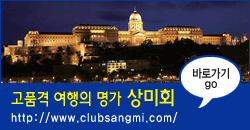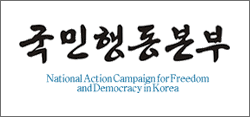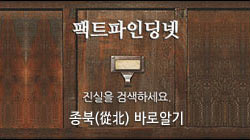|
(English version is below.) . 오늘 우리는 타슈켄트역에서 오전 8시 40분 기차로 ‘부하라(Bukhara)’로 간다. 이곳은 1993년 구시가지(舊市街地:Old Town) 전체가 유네스코의 세계 유산으로 등록될 만큼 유명한 곳이다. 거리는 타슈켄트역에서 중간 지점의 사마르칸트(270km)를 거쳐 부하라 종착역까지(230Km) 총 500km. 소요 시간은 총 6시간. 고속열차는 4시간 걸린다고 함. 우리는 특별한 경우가 아니면 보통열차를 이용한다. 나름대로 장점(長點)이 많기 때문이다. 평범한 현지인들의 기차여행 문화를 엿볼 수 있는 등등.
달리는 기차 내에서 자연스럽게 얘길 나누거나 웃고 떠드는 모습도 보고, 가져온 빵과 음료수를 먹고 마시며 즐거워하는 장면도 보기 좋고, 때때로 현지인들과 손짓·발짓 등 보디랭귀지로 대화를 나누는 재미도 있고, 차창(車窓)을 통해 타국(他國)의 산야(山野), 특히 우리나라에선 볼 수 없는 광활(廣闊)한 평야와 사막 그리고 촌락(村落)을 구경하는 재미와 함께, 사진도 찍을 수 있다는 것 등이다. 이러한 보통 사람들의 문화적 정서와 현상을 고속열차나 일등석에서는 접하기 어렵다.
사실 2000년 이후론 거의 볼 수 없는 장면이 됐지만, 1980년대와 1990년대만 해도 이런 기차여행이 가능했다. 물론 일반(완행) 열차의 경우다. 가령, 카이로에서 룩소르를 거처 아스완(약 700km)까지 가는데, 오늘날엔 4시간 정도면 되지만, 당시엔 10시간 이상 걸렸다. 달린다기보단 기어갔다고 하는 게 맞을 것 같다. 가령, 룩소르를 지난 어느 지점엔 사탕수수밭이 끝이 없을 정도로 넓었는데, 그곳에서 사탕수수를 베는 사람들에게 손짓하면 사탕 수숫대를 가지고 와 기차 난간에 서 있는 나에게 건네줄 정도였다. . 페루 아레키파에서 티티카카호수까지(250km) 가는 기차가 이틀에 한 번 있었는데, 역시 달리는 속도가 하도 느려 철로(鐵路) 옆에 무릎을 꿇고 앉아 두 손을 모아 기도하는 아이들에게 먹거리나 돈을 건네줄 정도였다. 다행이랄까, 이런 현상은 2000년 이후론 볼 수 없었다. 세계화(世界化)에 힘입어 전 세계가 동반성장(同伴成長)을 한 덕택이 아닐까 싶다. 이런 세상이 올 줄 알았으면 당시의 현장 모습을 많이 찍어 둘 걸 하는 아쉬움을 항상 느낀다. 왠지 세계가 폭망(爆亡)하지 않는 한 그런 모습과 풍경은 재현(再現)될 것 같지 않기 때문이다. . 오전 8시, 타슈켄트 역사(驛舍) 앞에 도착했다. 그런데 처음부터 좀 어리둥절했다. 역사 입구에서 30-40m 떨어진 외부 광장에 1차 관문이 있었기 때문이다. 구소련군들을 연상시키는 복장과 모자를 쓴 직원들이 세 명이 서서 기차표를 확인한 후 통과시키면, 역사 입구에서 다시 가방 검색을 했다. 물론 이곳에도 여러 직원이 같은 복장과 모자를 쓰고 모여 있었다. 분위기가 좀 어색하기 짝이 없었다. . 이곳을 서울역으로 치면, 서울역사 안에 들어가기 전에 먼저 역사 앞 지하도를 나오자마자 그곳에서 서울역 직원이 내 기차표를 확인하고, 그다음 역전(驛前) 광장을 지나 내가 서울역 건물 안으로 들어가려면 문 입구에서 역 직원이 다시 내 짐 검사를 하는 형식이다. 불필요한 일자리를 마구 늘려 놓아 오히려 불편을 주었다. 조금 과장하면, 역사 직원들이 기차를 타러 온 여객(旅客)들보다 더 많아 보였다. 이는 타슈켄트 지하철을 탈 때도 비슷했다. . 아마 우즈베키스탄이 구소련(舊蘇聯)의 공산체제 하에(1924~1991) 너무 오래 살아서인지 권위주의(權威主義)와 관료주의(官僚主義) 등 그 여파(餘波)는 계속되는 듯했다. 물론 내 경험상 이곳뿐만 아니라 구동구권(舊東毆圈)도 비슷했다. 비효율 비능률의 극치로 보였다. 인간은 어떤 정치체제(政治體制)하에서 사느냐에 따라 그 결과는 천양지차(天壤之差)임을 또 한 번 느꼈다. 우즈벡 영토는 대한민국보다 네 배나 크지만 일인당 국민소득은 2022년 현재 2천 불이 약간 넘는다($2,071).
감사합니다..
People met on my backpacking 151 - View of train and subway stations in Tashkent . Today we are going to 'Bukhara' by train at 8:40 a.m. from Tashkent Station. This is where the entire Old Town was registered as a UNESCO World Heritage Site in 1993. The distance from here to there is a total of 500 km, via the midpoint of Samarkand (270 km) to the terminal station in Bukhara (230 km). The total time required is 6 hours. The high-speed train takes 4 hours. My wife and I use local trains for most of our world travel. This is because local train travel has many advantages in its own way. We can get a glimpse of the train travel culture of ordinary locals. . We also see them laughing and chatting naturally in the running train. It is also nice to see the scene where they enjoy eating and drinking the bread and drinks they brought. We sometimes have opportunities to converse with locals through body language, such as hand gestures and foot gestures. Through the car windows, we can enjoy seeing the mountains and fields of other countries, especially the vast plains, deserts, and villages that cannot be seen in Korea, as well as taking pictures. In my opinion, it is difficult to encounter these cultural sentiments and phenomena of ordinary people on high-speed trains. . In fact, it has become a rare scene since 2000, but train travel like this was possible in the 1980s as well as in the 1990s. Of course, this is the case with regular trains. For example, from Cairo via Luxor to Aswan (about 700 km), it would take about 4 hours today, but at the time it took more than 10 hours. The trains at the time were laggards. For example, somewhere past Luxor, the sugarcane fields were endless, and I waved to the harvesters and they could bring a cane and hand it to me standing on the railing of the train. . There was a train every two days from Arequipa in Peru to Lake Titicaca (250 km). Also, the speed of the running train was very slow. I was able to hand food or money to the children who knelt down next to the railroad tracks and prayed with their hands together. Fortunately, this phenomenon has not been seen since 2000. I think this is thanks to the shared growth of the whole world through globalization. I always feel regret that if I knew this world would come, I would have taken a lot of pictures of the scene at the time. For some reason, I don't think I'll ever see it again unless the world suddenly collapses. . At 8 a.m., we arrived in front of Tashkent Station. But we were a little confused from the beginning. This is because the primary entrance was in the outer plaza, 30–40 meters from the entrance of the station. Here, three staff wearing uniforms and hats reminiscent of those of the former Soviet Union stood and checked our train tickets before letting us through. They sent us through a bag search again at the entrance of the station building. Of course, several employees were gathered there too, wearing the same outfits and hats. It wasn't a very pleasant feeling for me. . Assuming this is Seoul Station, as soon as I exit the underpass in front of the station before entering the Seoul Station building, several staff members check my train ticket there. And at the entrance of the Seoul Station building, the staff checked my luggage again. To exaggerate a bit, it seemed that there were more station staff than passengers who came to board the train. This atmosphere was similar when riding the Tashkent subway. . Perhaps, in my opinion, Uzbekistan lived under the communist system of the former Soviet Union (1924–1991) for so long that authoritarianism and bureaucracy continued to have such bad influences. Of course, in my experience, I've seen similarities not only here but also in the former East-European bloc. Their system seemed to me to be the height of inefficiency. I felt once again that depending on what kind of political system a human being lives in, the result is super so long that authoritarianism and bureaucracy continued to have such bad influences. Of course, in my experience, I've seen similarities not only here but also in the former East-European bloc. Their system seemed to me to be the height of inefficiency. I felt once again that depending on what kind of political system a human being lives in, the result is super different, just like from heaven to earth. Uzbekistan's territory is four times larger than that of South Korea, but its per capita national income is slightly over 2,000 dollars ($2,071) as of 2022.
Thanks.
|
|
타슈켄트 기차역·지하철역에 직원이 왜 이리 많나
여행 중 만난 사람들 151 – 조금 과장하면, 역사(驛舍) 직원들이 기차를 타러 온 여객(旅客)들보다 더 많아 보였다.
|
| [ 2023-05-04, 06:28 ] |  트위터 트위터  페이스북 페이스북  미투데이 미투데이  요즘 요즘  네이버 네이버 |














 bestkorea(회원)
bestkorea(회원)











































